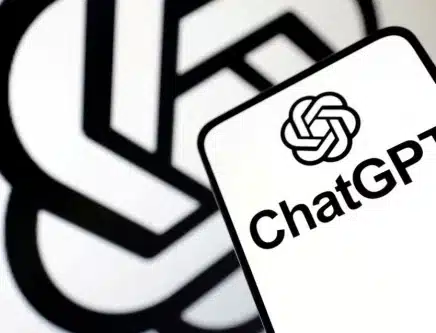OpenAI Launches ChatGPT Accessibility on WhatsApp and Phone Calls: A Major Step for AI Inclusivity
By News Desk
December 19, 2024
OpenAI has unveiled a groundbreaking way to engage with its AI chatbot, ChatGPT, introducing a free phone service in the United States and global accessibility via WhatsApp. The move is part of OpenAI’s “12 Days of Christmas” updates, aiming to make AI technology more accessible to a wider audience, including those unfamiliar with its web-based platform.
Phone Service for US Users
US-based users can now call ChatGPT directly by dialing 1-800-CHATGPT. This innovative service allows users to have voice-based interactions with the AI chatbot. Each user is allotted up to 15 minutes of call time per month, entirely free of charge. The service, built using OpenAI’s Realtime API, offers a streamlined and user-friendly way to experience ChatGPT’s capabilities without needing internet browsing or typing skills.
WhatsApp Integration for Global Users
For users outside the US, OpenAI has integrated ChatGPT with WhatsApp, leveraging the platform’s global reach and familiarity. By messaging ChatGPT through the number 1-800-242-8478, users worldwide can enjoy text-based AI interactions. Powered by OpenAI’s GPT-4o mini through the WhatsApp API, this integration is positioned as an entry-level tool to explore AI technology in an accessible format.
Kevin Weil, OpenAI’s Chief Product Officer, described the initiative as a stepping stone for AI newcomers. “This is designed to provide a user-friendly experience, bringing AI to people who may not have interacted with such technology before,” he said during a livestream event.
Simplified and Experimental Experience
OpenAI emphasizes that these features are experimental and offer a more simplified version of ChatGPT compared to its traditional web-based platform. Existing users seeking advanced capabilities, higher usage limits, or customization options are encouraged to continue using the full platform. The phone and WhatsApp features serve as a low-cost and approachable introduction to ChatGPT’s functionality, making it ideal for less tech-savvy individuals.
Privacy and Security Measures
Addressing concerns about data usage, Taya Christianson, a spokesperson for OpenAI, clarified that data collected from calls would not be used to train OpenAI’s large language models. This assurance highlights the company’s commitment to user privacy and ethical AI practices.
Inspiration from Past Innovations
The initiative draws comparisons to Google’s 2007 GOOG-411, a voice-based directory assistance service that was discontinued in 2010. While Google reportedly used GOOG-411 to collect voice samples for its speech recognition technology, OpenAI’s project focuses on bridging the gap between advanced AI tools and everyday users in a more direct and transparent way.
Strategic Expansion and Future Plans
The introduction of these services aligns with OpenAI’s broader strategy to make AI technology more inclusive while managing the costs of operating its advanced AI models. The features were developed during a short but intensive “hack week,” showcasing OpenAI’s ability to innovate rapidly.
The organization has hinted that the availability and limitations of these experimental features may evolve based on user demand. While the phone service is currently limited to US users, the WhatsApp version is accessible globally, reflecting OpenAI’s intent to cater to a diverse audience.
Other December Updates
In addition to these new accessibility features, OpenAI has also announced an AI text-to-video generator named Sora and a premium subscription tier. The premium plan provides access to OpenAI’s most powerful models for $200 per month, catering to users with advanced AI needs.
A Milestone in AI Accessibility
By making ChatGPT available via phone calls and WhatsApp, OpenAI is lowering barriers to AI adoption, allowing users from various backgrounds to experience its potential. As the technology evolves, these initiatives are expected to play a critical role in shaping how people interact with AI in their daily lives.


